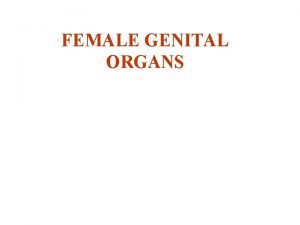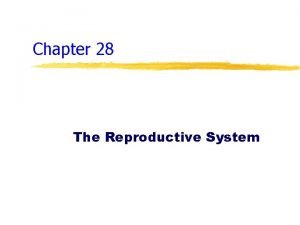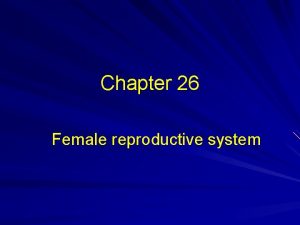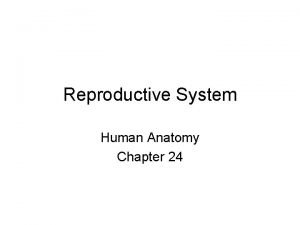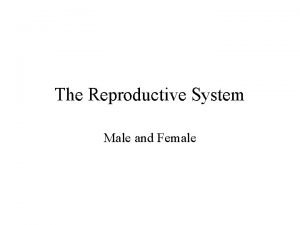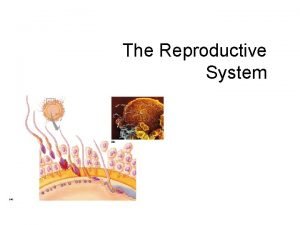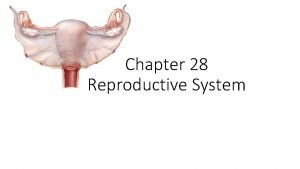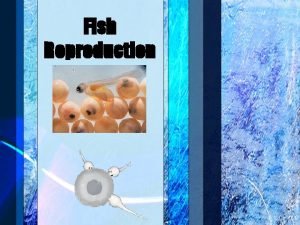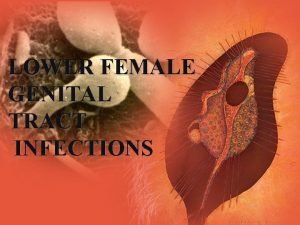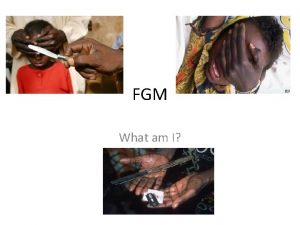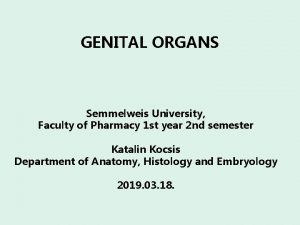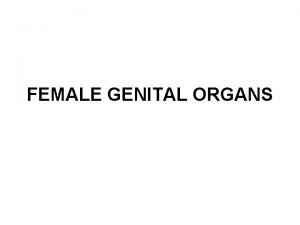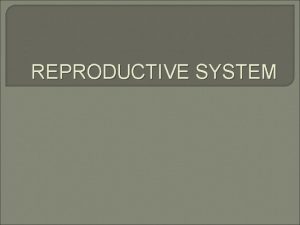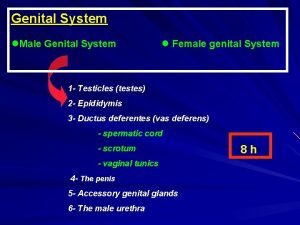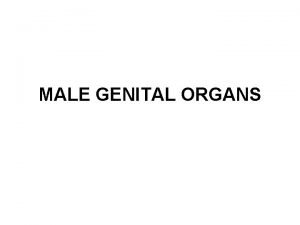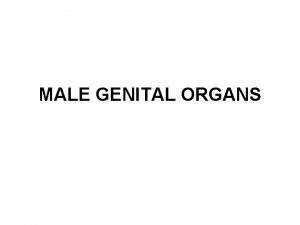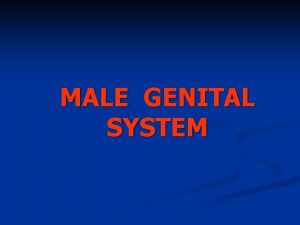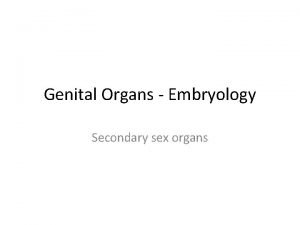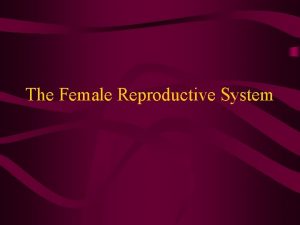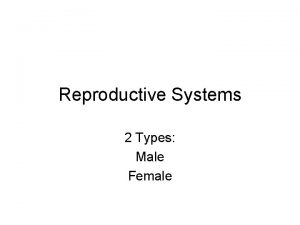FEMALE AND MALE REPRODUCTIVE SYSTEMS MALE GENITAL ORGANS

















- Slides: 17

FEMALE AND MALE REPRODUCTIVE SYSTEMS

MALE GENITAL ORGANS • Internal Genital Organs – – – Testes Epididymis Ductus deferens Ejaculatory duct Accessory glands • Seminal Vesicle • Prostate • Bulbourethral gland • External Genital Organs – Penis – Scrotum

TESTES • Paired oval glands located in scrotum • 5 cm long and 3 cm in diameter • Surrounded by dense white capsule (tunica albuginea)

• 250 lobules. • 1 to 4 -seminiferous tubules • Short efferent ducts exit the testes.

Seminiferous Tubules • Seminiferous tubules contain • Interstitial cells

Seminiferous tubule Straight tubule Rete testis Efferent duct Ductus Epididymis Ductus deferens

EPIDIDYMIS • 6 meters • maturation process

EPIDIDYMIS • head • body • Tail

Duct System • epididymis, ductus deferens, ejaculatory duct, and urethra.

Spermatic Cord • contains the proximal ductus deferens, testicular artery and veins, lymph vessels, testicular nerve, cremaster muscle and a connective tissue covering.

Ejaculatory Duct • Ampulla • Each ejaculatory duct passes through the prostate gland empties into the urethra.

Semen Mixture of sperms and seminal fluid 60% from seminal vesicles, 30% from prostate Slightly alkaline, milky appearance and sticky Contains nutrients, clotting proteins & an antibiotic to protect the sperms • Typical ejaculate is 2. 5 to 5 ml in volume • Normal sperm count is 50 to 150 millions/m. L • • – Actions of many sperm are needed for one to enter – If less than 20 millions/m. L sterile

Scrotum • • skin and subcutaneous tissue septum dartos muscle cremaster muscle

PENIS • is a cylindrical pendant organ located anterior to the scrotum and functions to transfer sperm to the vagina. • consists of three columns of erectile tissue that are wrapped in connective tissue and covered with skin. The two dorsal columns are the corpora cavernosa. The single, midline ventral column surrounds the urethra and is called the corpus spongiosum.

• Tunica albuginea • Septum penis • Trabecula corporum cavernosum/spongiosi • Caverna corporum cavernosum/spongiosi

Erection • Involves increase in length, width & firmness • Changes in blood supply: arterioles dilate, veins constrict • The spongy erectile tissue fills with blood • Erectile Dysfunction [ED] also known as impotence

Emission and Ejaculation • Emission – Muscle contractions close sphincter at base of bladder – Fluids propelled through ductus deferens, seminal vesicles, & ejaculatory ducts into bulb of penis – Prostatic fluid secreted into urethra • Ejaculation – Sympathetic nervous system reflex – Skeletal muscles squeeze semen out through urethra
 Function of fallopian tube
Function of fallopian tube U
U Sagittal female reproductive system
Sagittal female reproductive system Perinetrium
Perinetrium Drawing of the male and female reproductive system
Drawing of the male and female reproductive system Female and male reproductive system
Female and male reproductive system Similarities between male and female reproductive system
Similarities between male and female reproductive system Drawing of the male and female reproductive system
Drawing of the male and female reproductive system Uterine orifice
Uterine orifice Anatomy of fish reproductive system
Anatomy of fish reproductive system Defense mechanism of female genital tract
Defense mechanism of female genital tract Female genital mutilation
Female genital mutilation Anteversion and anteflexion
Anteversion and anteflexion Womens anatomy
Womens anatomy What does fgm do
What does fgm do Male genital variation
Male genital variation Reproductive hygiene
Reproductive hygiene Path of male reproductive system
Path of male reproductive system
